Common Causes of Balance Disorders in the Elderly
Having good balance is the ability to maintain and control the body’s position comfortably while standing, walking and running, climbing the stairs, or even sitting down. It’s a core element in maintaining your independence and addressing problems with balance can make carrying out routine activities much more difficult.
According to The Journal of the American Osteopathic Association, falls are the leading cause of both nonfatal and fatal accidents for adults aged 65 and above. The journal also mentions how 30-40% of older adults experience at least one fall each year.
In this blog, we’ll go over some of the common causes of balance and gait disorders in the elderly.
Symptoms of Balance Problems
Problems with the bones, muscles, joints, heart, and blood vessels can trigger balance problems. Some of its signs and symptoms include:
- Feeling faint or lightheaded (presyncope)
- Unsteadiness or loss of balance
- Sense of spinning or motion (vertigo)
- Vision problems
- Confusion
- Feeling dizzy
Causes of Balance Problems
Balance problems can be caused by a number of conditions with each symptom pointing to a specific health issue. Let’s go over a few symptoms and their underlying conditions.
Vertigo
Vertigo refers to a sense of spinning and motion and is likely caused by the following conditions:
- Migraine: Sensitivity and dizziness to motion that occurs because of migraine headaches.
- Head injuries:One of the reasons for experiencing vertigo is head injuries that result in concussions.
- Meniere’s disease:In addition to dizziness, the disease can also cause a fluctuating loss of hearing, ringing sounds, and buzzing. Meniere’s disease is rare and its causes are yet to be fully understood.
- Motion sickness: A sense of dizziness in boats, airplanes, cars, etc. Usually happens to people with migraines.
Feeling Faint or Lightheaded
Lightheadedness is associated with two diseases: cardiovascular disease and postural hypotension. The former includes thickened heart muscles, blocked or narrowed blood vessels, abnormal heart rhythms, or decreased blood volume. The latter involves a sharp drop in blood pressure whenever the person immediately stands or sits down.
Unsteadiness or Loss of Balance
A loss of balance can be traced back to a number of issues that include vestibular problems, the side effects of medications, muscle, vision, or joint problems, and nerve damage to the legs.
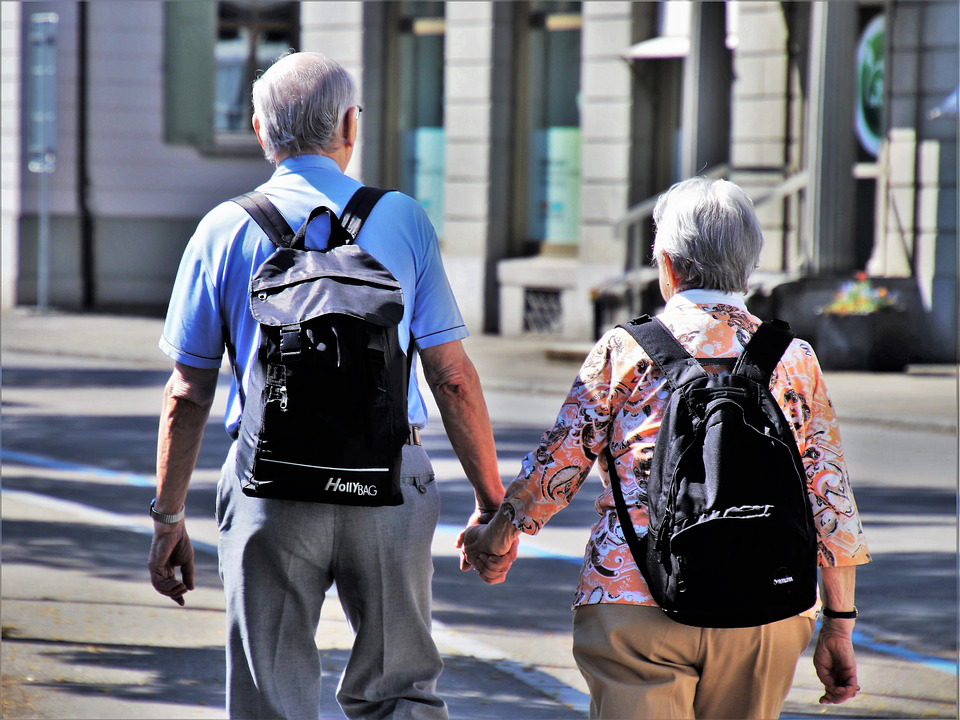
Especially in older adults, exercise and a healthy diet are necessary for combating balance disorders. AvantGarde Senior Living provides senior living homes in Van Nuys, California for older adults with balance problems. They have friendly and qualified staff that caters to all the needs of its senior members and community. Contact us today for more information.
Ways to Improve the Memory of a Patient with Alzheimer’s
Statistics show that in 2018, 5.7 million Americans had been diagnosed with Alzheimer’s disease.
Approximately more than 200,000 people above the age of 65 were diagnosed. But in the U.S., the disease is known to affect individuals aged 50–65 and older. Moreover, it has been estimated that by 2050, the treatments for Alzheimer’s will cost the country more than 1 trillion.
The report also shows that every 65 seconds, someone in the U.S. is diagnosed with Alzheimer’s. African-Americans are more likely to be diagnosed than Caucasians.
Taking care of a senior loved with Alzheimer’s isn’t easy. It can be stressful not being able to give them the proper care they deserve. It’s also understandable that you feel immensely guilty not being able to your loved the time, patience, and love they need.
But know that there are ways you can help them regain their memory.
Here are a couple of things you can do.
Be Understanding and Patient
It’s understandable that caring for an elderly loved with the disease can be incredibly frustrating and distressing for both you and your loved one. Your elderly loved one will forget certain words, actions, and sometimes behave erratically.
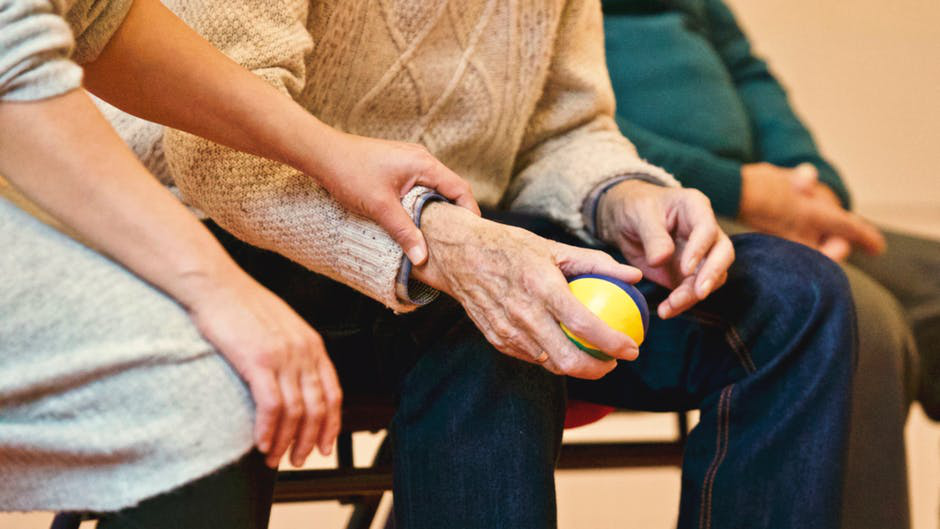
The best thing to do in such situations is to try and be as understanding and calm as possible. Don’t show anger and frustration. If you need to, see if you can leave the room for five minutes to cool down.
Memory problems can severely change one’s ability to communicate effectively. From your tone to your body language, make sure you come across as warm, kind, and patient.
Try Brain Training Apps
In order to function properly, the brain needs regular exercise. By using brain training apps, you can help your elderly loved one improve their cognitive functions. Such apps and games stimulate the mind and are designed to make it easier for individuals to remember things.
For example, while playing a game, your elderly loved one will be required to remember small clues. Every time they fail, they can try again. Being repeatedly exposed to the same scenario can help improve their ability to recall what they need to complete the game.
Arts and Crafts
Arts and crafts are an excellent way for elderly patients with Alzheimer’s to improve their memory. They will be able to utilize their energy and think creatively. This will stimulate their mind. Furthermore, it’ll also help make them more independent.
If you’re living in Calabasas and need a senior care community for your elderly loved one, check out AvantGarde Senior Living and Memory Care. We specialize in memory care and offer a variety of living options for elderly individuals including independent living as well as assisted living.
Contact us at (818) 881-0055 for more information.
Dealing with Aggression in Seniors with Alzheimer’s
According to a factsheet published by the NIA-National Institute on Aging, a commission of the US Department of Health and Human Services, the disease is the 6th leading cause of death in the US. It is also the most common underlying factor that contributes to dementia in the senior population.
If you’re one of the many who have senior loved ones suffering from Alzheimer’s, as trained and experienced professionals in the field of assisted living, we understand how hard this can be. We also understand that there are times when it can be a challenge to care for those we love due to the nature of their illness.
Aggression, Alzheimer’s and How to Deal With It
Senior loved ones suffering from Alzheimer’s may become, cranky, irritable and even aggressive at times. There are a number of reasons why this is so. These include difficulty communicating feelings like pain, discomfort or hunger.
It can also be due to other reasons such as environmental factors. These include crowded or noisy environments, over stimulating smells or simply feeling lost in their own surroundings.
In any case, if your loved one is struggling in such a manner, here are some things you should implement.
Explore the Cause
Look into possible reasons for your loved one to be behaving angry or reactive. Was it to do with the food they were served? Did it coincide with an unexpected visit by friends or family? Did they hurt themselves? Are they in pain or discomfort? Pain and discomfort in many cases in the prime cause of aggression in patients suffering dementia. The sooner you identify the cause, the sooner and better you can address the aggression.
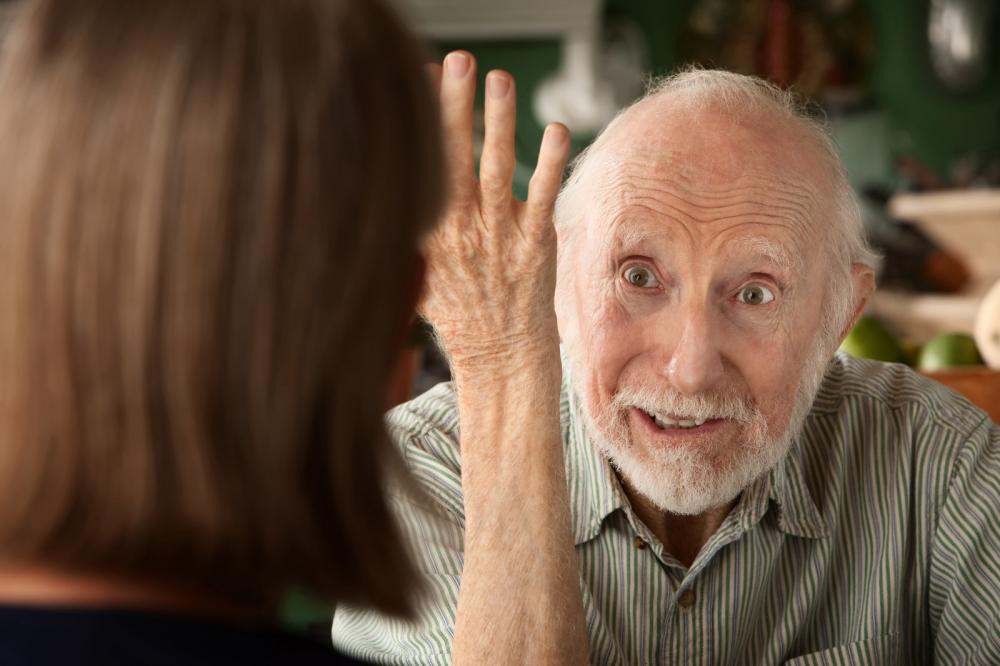
Feeling Focused
You might sometimes be tempted to get very heady and fact oriented when exploring the cause of your loved ones aggression. Try not to do this. Give their emotions and feelings tangible weight and significance. Do not ignore how they feel because at times, it is the simplest of emotional communication which is all they may be able to manage.
Patience
No matter how much love we have for someone, caring for an aggressive loved one suffering from Alzheimer’s is a challenging task. We may sometimes get flustered or frustrated. Try to check this as much as you can. Stay calm, be patient and don’t get angry. It’s a struggle for them too.
Relax Them or Shift Focus
If possible, try to do something that you know relaxes them or calms them down. Basically try to shift focus from the point of frustration to something less jarring or negative for them.
Pull Back
Remember as a caregiver, taking care of yourself is important too. If the aggressive behavior escalates or doesn’t seem to diminish, pull back, take a break and let someone else take over. At times, if the senior loved one in question is becoming a threat to themselves, you or others around, calling 911 and seeking professional support is highly recommended.
Are There Alternatives?
If you feel that it would be safer and better for your senior loved one to have easier and quicker access to professional care but need a pleasant and positive environment for them, you have options.
Assisted living facilities for seniors suffering from Alzheimer’s requiring added care such as ours are geared to provide your loved ones with a healing environment. This includes a community to interact with and care as well as health professionals on call 24/7.
If you’re located in Calabasas, CA and Alzheimer’s memory care and senior living homes, apartments and a community your loved one will thrive in, connect with us now!
Catching Signs of Alzheimer’s Early On
Memory loss that begins to impact an elderly loved one’s daily life can be a symptom of Alzheimer’s or other types of dementia. Alzheimer’s is a very common disease that affects the brains of elderly individuals and slowly causes cognitive decline. As the disease progresses, elderly people suffer from serious memory loss and have difficulty with reasoning skills.
If you’re worried about an elderly loved one developing Alzheimer’s lookout for these early signs:
1. Loss of Memory that Affects their Daily Life
Memory loss is the most prominent symptom of Alzheimer’s. When the disease first begins affecting the brain, the patient will start forgetting events and dates. You’ll notice them asking about the same things repeatedly and relying on notes.
2. They Struggle With Planning and Finding Solutions to Problems
The simplest of tasks start feeling difficult for patients of Alzheimer’s. People struggle with following recipes, creating a simple plan for the weekend and monitoring their monthly bill payments. This usually happens because the disease is causing their cognitive function to deteriorate.
If you find that your loved one is making errors in their checkbooks, it may be an early sign of Alzheimer’s.
3. Difficulty Finishing Simple Tasks
Daily tasks that elderly individuals could do without giving it a second thought suddenly become very daunting when they develop Alzheimer’s.
Driving to a location they’ve been to hundreds of times may get confusing. They may have a tough time remembering the rules of a board game they’ve played throughout their lives and may struggle with budgeting.
4. They Can’t Make Sense of Visual Images
Some people with Alzheimer’s develop vision problems. Reading can become a challenge and they may have a hard time judging distance and color too. If you notice any of these signs then it’s time you ask them to stop driving.
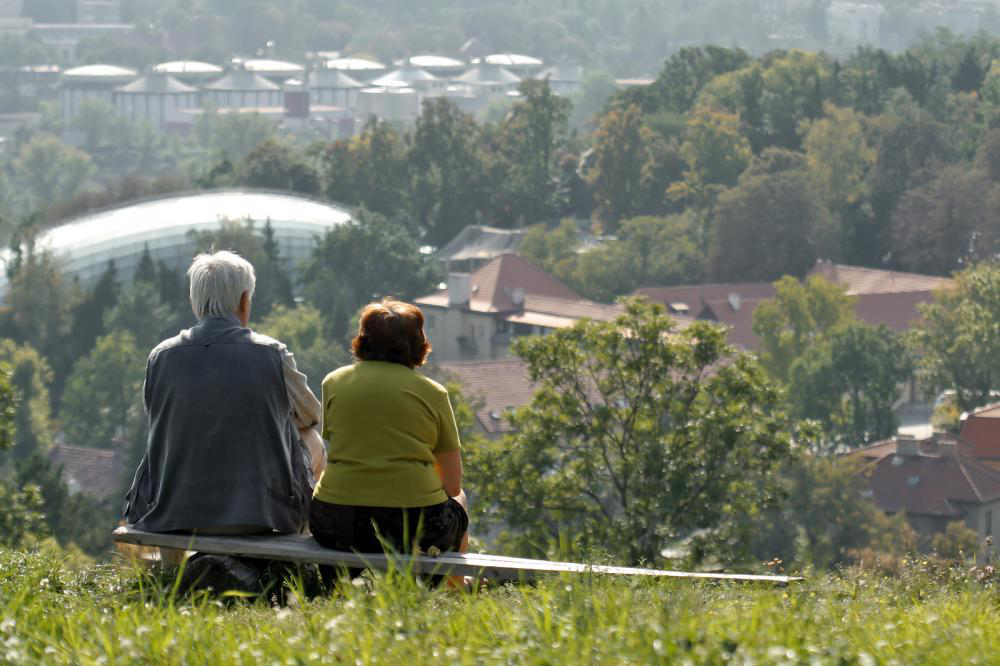
5. They Can’t Keep Up With Time
Everyone loses track of time every now and then but when it becomes a regular problem, it could indicate cognitive decline.
People with Alzheimer’s have trouble understanding isn’t happening right away. If you tell them that you’ll take them to the park in half an hour and they get up immediately, then it could be an early sign of Alzheimer’s.
6. Trouble with Speaking and Writing
People with Alzheimer’s and dementia have trouble with following conversations and speaking. They have a tendency to stop mid-sentence and repeat themselves because they forget what they’re talking about.
If you have a loved one who has Alzheimer’s, give them the care they deserve at AvantGarde Senior Living and Memory Care. We offer luxurious independent living and assisted living facilities for elders suffering from memory loss.
Call us for more information at (818) 881-0055.
Differing Between Assisted Living and Memory Care
Senior care communities have grown in popularity over the years. Many seniors opt to join such communities for the convenience and social lives they provide. There are two main kinds of such communities, Memory Care and Assisted Living.
According to the US Department of Health and Human Services, 70% of seniors over 65 will need assisted living communities of some sort. After a certain point, living independently isn’t the best option for your senior loved one. This is when most caregivers have to make the decision between memory care or assisted living.
So what’s the difference between the two?
Assisted living communities
Assisted living communities provide long-term care to elderly folk. This includes housing, healthcare, meals, and assistance in day to day activities. Medication management and transportation are also provided to residents of such communities.
Care and assistance are provided around the clock. Residents can opt for a private room or a shared space, depending on their budget and preference.
As your senior family member gets on in age, living independently might not be safe for them anymore. They’re at risk of falling, slipping, or may just get tired and overwhelmed with the amount of work day to day life entails.
Assisted living communities provide the extra help they need to live a fulfilling life. Age-related problems like mobility, pains, and aches can be made better with assistance and support.
Memory care
Memory care is a more specialized form of assisted living. The program is specifically designed for those suffering from dementia and other memory-related disorders. Dementia is a medical condition where a person’s mental ability deteriorates their daily life, due to symptoms like memory loss. The syndrome is progressive in nature, making it worse as the person ages.
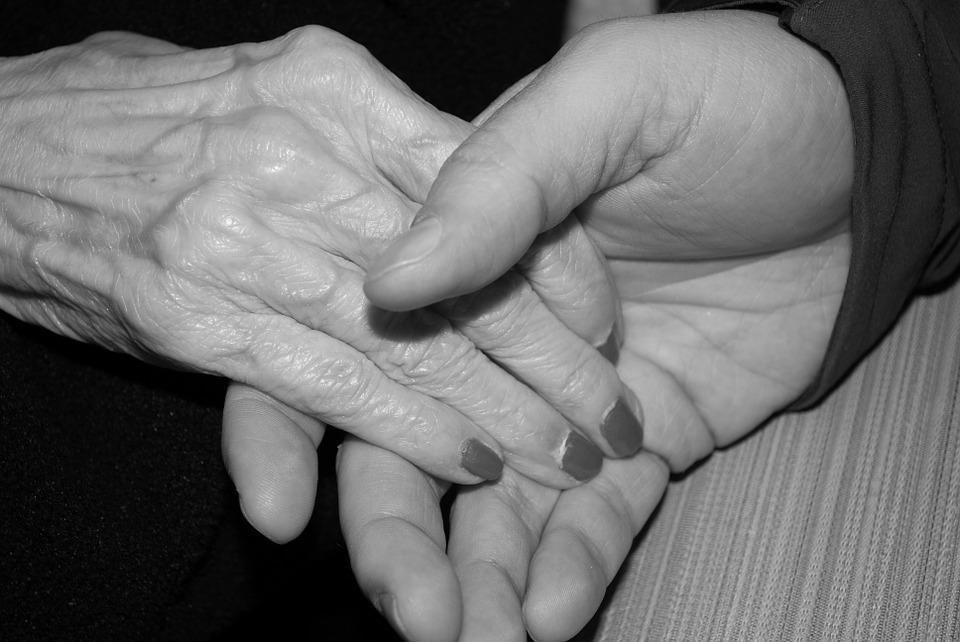
At memory care communities, trained individuals who understand the stages of the syndrome are around your senior loved ones at all times. Memories are an important part of us. They link us to our family and past generations. The caregivers at AvantGarde understand this. They use unique and innovative techniques like memory cues and non-verbal communication to reorient residents.
Memory care provides 24/7 supervision to assure the wellbeing of your loved one. The program also includes therapy to address behavioral issues, leisure therapy, and much more.
Services like ours also focus on the families of residents with dementia. We provide as many helpful information and tips on dealing with senior loved ones going through this syndrome as we can.
Are you looking for a reliable and comfortable place for your loved one? Visit our senior living community, AvantGarde.
Your senior family members will be in the competent hands of our Beverly Hills elderly care. Take a virtual tour of our premises or check our amenities. Contact an advisor for more information.
Learning about Memory Care: The Basics
Memories bring us closer to people. And friends and family make up the majority of the memories we hold dear. As we get older, our memory turns fuzzy. Some elderly folk even develop conditions like dementia and Alzheimer’s. This puts a huge strain on relationships.
According to the World Health Organization, 10 million people are diagnosed with dementia each year; the syndrome only progresses with age.
Memory Care is a specialized assisted living program that is beneficial to those experiencing memory-related problems. The caregivers provide support to residents and their families in tough times. Here’s what you need to know about it:
Memory care is a comprehensive program
Memory care isn’t like regular assisted living programs that provide assistance with meals, bathing, medication, and dressing. Assisted living communities with these services have highly trained individuals who assist your loved ones suffering from dementia. Supervised care for residents at all stages of the disease is provided.
The service takes care of all aspects of the wellbeing of a resident. The program is a convenient safe haven for your senior loved ones.
Caregivers in the memory care program are well educated on the subject of memory loss and its stages. They use innovative techniques like memory cues and non-verbal communication to redirect residents and help them navigate tasks. Their compassionate approach to residents impacts their behavior and abilities exceptionally.
Memory care communities are built for those suffering from dementia
Memory care communities are built to facilitate all the care residents need with dementia.. The premises are designed in a way that they reduce the risk of anyone wandering off. The environment is secure; hallways are designed to assist navigation like color coding. The communities are built to encourage residents to remain as independent as possible without putting your senior loved ones at risk.
Memory care communities help with behavioral issues
Other than leisure programs and therapy for memory impairment, memory care communities can help with behavioral issues that arise with residents. Caregivers adapt their techniques to the progression of the disease in each individual at the community, treating each resident keeping in mind their history, helps rehabilitation.
Memory care serves families of residents too
Every dementia and Alzheimer’s diagnosis takes a toll on the family. Relationships are strained and it can be difficult to see life positively. Memory care communities like AvantGarde take care of all aspects of a senior loved one’s needs.
Family members can be sure of the best assistance being given to residents. They’re in a safe environment with 24/7 care and company. Families of residents are provided with information and practical tips on how to deal with the onset of dementia.
Do you have a loved one who’s been diagnosed with dementia? Visit our senior living community, AvantGarde. Your senior family members will be in the competent hands of our Beverly Hills elderly care. Take a virtual tour of our premises or check our amenities. Contact an advisor for more information.
Eldercare Decisions: Dealing with Guilt and What You Should Know
Even when the decision is undoubtedly the best decision that you could possibly make, you’re often weighed down by guilt. There’s a feeling that overtakes you when you move towards the final stages of the decision—the overwhelming question of whether you’re doing the right thing. Having a loved one live at a distance from you can have some emotional repercussions, and can affect you to the point where you begin feeling guilty and regretful about it.
While it is completely natural to feel what you’re feeling, know that you’re not the only person who goes through this guilt trip when it comes to senior living. In this blog we explore the reasons that could be behind your guilt trip and provide suggestions on how to overcome them.
The Reversal of Roles
Traditionally and biologically, it’s always the elderly who’re supposed to take care of the young. They look over you and protect you, guard you and educate you, provide you their support as you grow up. You learn as you grow that you can and are dependent on them, accepting this as a de facto role. Yet as old age leans in, there are tables turning left and right. The cared for becomes the caretaker and the supported becomes the supported. This parent-child role reversal has psychological consequences, and takes some adjusting before you can fully come to terms with the situation.
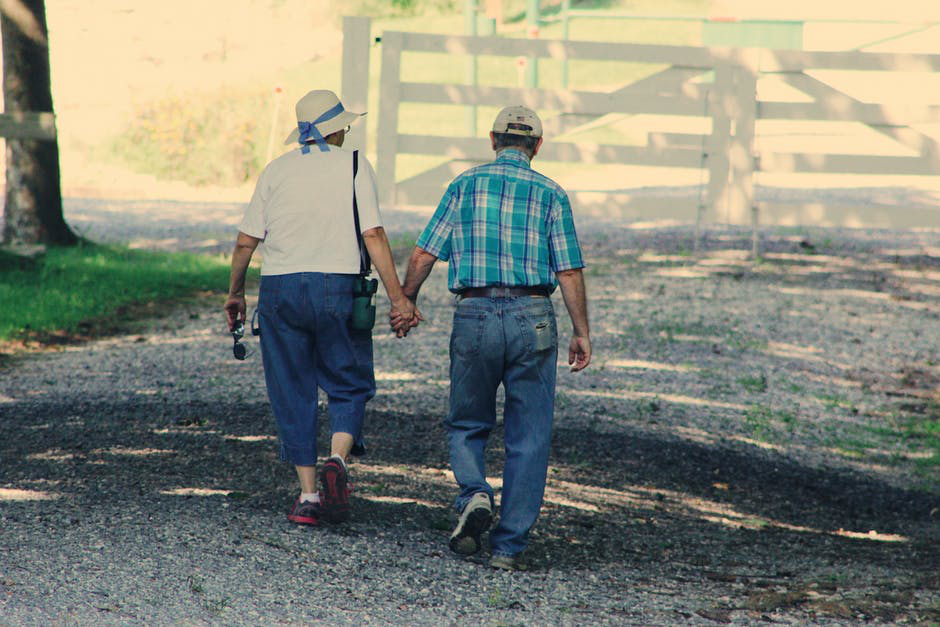
Getting Past the Guilt
Since you’re tasked with the job of relocating your beloved family members, it goes without saying that there’s a guilt trip in order. No thought leans more heavily on the mind than the doubt and suspicions about senior living. Assisted living already comes with a number of stigmas associated to it, and all these rumors collectively contribute towards making you feel heavy and downtrodden.
There are ways to overcome this because you know, at the core of your heart, that while it might be a big decision to make, it is best for everyone involved. If your loved ones require specialized attention and care, someone on a professional level should be providing them with such.
The first step is to anticipate the change. You know change is incoming and you must mentally prepare yourself to tackle it. Then, find out in great detail about the senior living community that you have chosen, satisfying yourself and your loved ones about the quality of care they would receive. Make friends with the staff and get to know more about the environment at the senior living center. Once you find out that the environment is homely and at times even better in terms of providing a communal space, all your worries will vanish in thin air. Knowing that your beloved family members are happy and content is what you’re looking for, and it is how you will eventually get over your guilt trip.
Start the Experience Today
Work out your guilt and regret by scheduling a tour with us at AvantGarde Senior Living to know more about us. We will send you back satisfied and will answer any questions that you might have.
Spotting Depression in the Elderly
Depression has long been chalked off as “just feeling blue” or a state of sadness, but a recent increase in awareness has shed much-needed light on the mental health issue. Unfortunately, while depression in young or middle-aged people is more recognized, depression in the elderly often goes undetected.
According to the CDC, there are over 7 million adults who age 65 or above and 17% of that age group suffers from depression. Many experience depressive episodes after the age of 60. But only 10% of the group receive any treatment.
A major reason why depression is so under-recognized in the elderly is that the symptoms of depression in old age are different than those in younger people. Those symptoms are often just attributed as a normal part of aging and so senior adults seldom receive proper treatment.
How Is Depression in the Elderly Different From Those That Are Younger?
The common signs of depression that manifest in younger people are usually not there in case of depression in the elderly. Later-life depression is often accompanied by various other medical illnesses and usually tends to last longer as well.
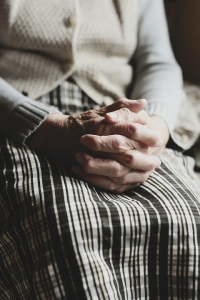
Depression in the elderly often brings with it increased risks of heart diseases. Psychosis is another secondary sign accompanied by depression. 3.6% of the elderly who have been hospitalized with depression experience psychosis afterward. 17% of the people who suffer from dementia or Alzheimer’s have depression as well.
Symptoms of Depression in the Elderly
If you want your senior loved one to lead a healthy and happy life, keep a look out for the following symptoms:
- Persistent sadness or constant feelings of despair
- Unexplained pains and aches
- Isolating from others and losing interest in socialization
- Drastic weight loss and a loss of appetite
- Persistent feelings of helplessness and hopelessness
- Lack of energy and motivation
- Irregularities in sleeping patterns (insomnia, difficulty staying asleep, drowsiness, oversleeping, etc.)
- Feelings of worthlessness and loss of self-worth, worrying about being a burden
- Slowed speech or movement
- Possible increase in the use of substances like alcohol
- Persistent thoughts about death
- Memory problems, dementia, etc.
- Neglecting their personal care, hygiene, forgetting to take medicines, skipping meals.
The elderly will often not be vocal about their depression so it’s up to their caregivers to keep a lookout for any red flags and get them immediate care.
Living together with an age-mate can make a world of difference in warding off depression. With a wider social circle to interact with and keep them company, living in a senior care community can help your senior loved ones. Get in touch with us at AvantGarde today for more details.
Signs Your Aging Loved One Needs Care-Giving Services
While having your elderly loved one live in a senior housing community may seem like an uncertain and intimidating task, having them continue living on their own can have dangerous consequences on their health and well-being. If you notice any of the following signs, it may be time for them to move to a senior care unit!
Isolation
Has your loved one been avoiding meeting family and friends lately? Do they appear to be distant and disconnected from everybody, preferring to stay at home all alone? If you’ve noticed them isolating themselves and declining lunch invitations and family get-togethers, it’s a sign that they need care and help.
Having a support system is important in all stages of life. This need multiplies in old age, when your physical and mental capabilities gradually start to deteriorate. This is why they need to be surrounded by people who can help them get through basic and complex tasks.
Isolation is also an indication of loneliness and if left unresolved, can have severe consequences on their health. Being in a senior care community can help them socialize with likeminded individuals and continue participating in activities they enjoy. It can also lead to new friendships and hobbies.
Injuries & Bruises
According to the National Council on Aging (NCOA), 1 in 4 Americans over the age of 65 suffer serious injuries due to slip and fall accidents. In fact, the leading cause of death from injuries in older adults is attributed to falls. The risks of such deadly injuries only increase with age, making the outcomes even worse.
If your aging loved one seems to have odd bruises and cuts on their body, than it may be because of repeated falls and slips. In more severe cases, they may even fracture their bones and develop other health complications. If they live alone or in a house with slippery tiles and staircase, then they’re even more susceptible to falls.
Act before the situation escalates. If your loved one has had instances of fall-related injuries, than it’s highly recommended that they be shifted to a senior care unit where their health and activities can be supervised to prevent injuries.

Neglected Home Maintenance
Does the house look like it hasn’t been dusted, mopped, or vacuumed in weeks? Are there piles of dirty dishes in the kitchen? Is their mailbox stuffed with unopened envelopes and bills?
If so, it may be because your loved one’s having a hard time doing household activities and chores. Unkemptness is often a sign that assistance is needed, and assisted living communities offer exactly that!
AvantGarde Senior Living & Memory Care is a senior living community in Hollywood, California that provides independent living as well as assisted living services.
Call us at (818) 881-0055 to learn more!
Caring for the Emotional Needs of the Elderly
Growing older has its pros and cons. Older people enjoy being free from hectic jobs, having more time at their disposal to spend on their favorite pastimes, or moving to their vacation homes to enjoy nature.
On the other hand, growing older can bring a lot of problems with it as well. It’s common for older people to get bored, feel insecure and lonely, and miss the hustle and bustle of daily life. Around 40 million Americans are now above the age of 60. Let’s see what their emotional needs are and how they may be fulfilled.
Interdependence
A little child needs great support from their parents as they grow up, and most parents adequately provide this support in the form of unconditional love and security. These roles are reversed as parents grow older.
An older person can’t possibly take care of themselves alone when health issues creep in. Therefore, they need to be taken care of. Ideally, these needs would be fulfilled by their loved ones, but if they can’t, a good assisted living community is quite capable of catering to them.
Security
As our health depreciates and our mobility becomes limited, we start to feel insecure. This includes worrying about our physical and financial security.
Installing safety systems at our older loved one’s homes and providing them with a financial fallback option is a great way of ensuring they don’t worry needlessly.

Human Connection
It’s human nature to want meaningful connections and company. According to the AARP Foundation, social isolation has adverse health effects that are as severe as daily smoking. Since a lot of older people’s friends and family pass away, it’s advised that their immediate children take some time out for them or that they have communal bonds in an assisted living community.
Enjoyment
Everyone needs some enjoyment on a daily basis. Seniors might enjoy gardening, reading, or video games. Make time for them and try to help them through their favorite hobbies. Gardening with them, for instance, is a great way of becoming closer to your older loved one. On the other hand, an assisted living community can also give them the ability to practice their hobbies.
Luxury Old Age Home in Hollywood, CA
AvantGarde Senior Living and Memory Care in Hollywood, California is a luxury old age home service.
Security is ensured with state-of-the-art technology and your senior loved ones get a lot of enjoyment opportunities, such as a pool table, outdoor BBQ, mini golf, restaurant style dining, Wi-Fi, etc.
We guarantee that when you come to visit your loved one, you’ll be happy to know that they’re cared for like our own. Visit our website or call us now at (818) 881-0055 for more details.










